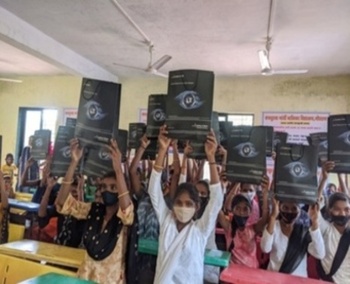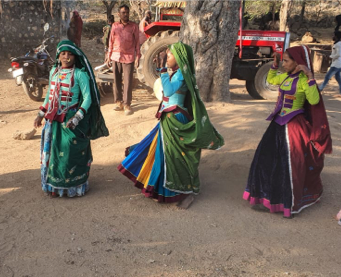The Impact of Financial Independence on Women’s Confidence and Community Roles

There is no denying the fact that financial independence brings in a sense of strength and power that other methods might not. When you know that you need not depend on another person to run your household or life, you are able to move forward with an enhanced sense of confidence. Financial independence for women is a transformative force in India because it can significantly enhance their confidence and redefine their roles within communities. When women gain control over their finances, they experience increased self-esteem, autonomy, and a greater capacity to contribute to societal development.
Understanding the barriers to financial independence for women in India
If one were to look at India, there would be several reasons for women’s lack of financial independence, and understanding them would be step one to finding a solution to the problem. It is also essential to comprehend that this lack of financial independence is due to a combination of societal, structural, and personal factors.
- Cultural norms and gender roles – Deeply entrenched patriarchal norms assign women the primary responsibility of caregiving and household chores. They spend disproportionately more time on unpaid domestic work and childcare than men, and the lack of affordable childcare services limits their ability to work full-time or pursue entrepreneurial ventures. Women are often discouraged from seeking employment or managing finances independently, reinforcing their dependence on male family members. In case they do work or manage finances independently, they are forced to face societal judgment and resistance, particularly in conservative communities, discouraging them, even when opportunities exist. Moreover, although Indian laws grant equal inheritance rights, in practice, societal
norms often prevent women from claiming or controlling property. This lack of property ownership restricts women’s ability to use assets for financial security or leverage them for loans.
- Lack of education – Although female literacy rates in India have improved, they still lag behind male literacy rates; limited access to higher education restricts women from entering high-paying, skill-intensive professions. According to a 2017 study by the National Centre for Financial Education (NCFE), only 24% of Indian women are financially literate, and in comparison, 35% of men have financial literacy. This gender gap is even more pronounced in rural areas, where the number is a dismal 15%. This lack of financial literacy makes it difficult for them to manage money, invest, or save effectively.
- Workforce participation – India has one of the lowest female labor force participation rates globally and this low rate is often attributed to societal expectations, the burden of unpaid domestic work, and limited job opportunities in many sectors. Moreover, women are paid significantly less than men for the same work and this disparity discourages women from entering or staying in the workforce, hindering their ability to accumulate wealth and achieve financial autonomy. It is also important to note that workplace harassment, unsafe commuting conditions, and discrimination also deter many women from joining or staying in the workforce.
In rural India, there is also limited access to financial services – lack of access to banks, credit, and other financial services also leads to financial disparity.


The role and importance of financial independence in women's life
Financial literacy is a cornerstone of financial independence and it is no surprise that educated women are better equipped to manage their finances, make informed decisions, and seize economic opportunities. Now that we are aware of the problems that hinder financial literacy and independence, there need to be efforts to improve these and lead women towards economic empowerment.
Here is why women’s financial empowerment and independence matters:
- Breaking the vicious cycle of poverty – When women earn, they contribute to the household income, which directly improves living standards. Certain studies have shown that when women work, the GDP of a region rises significantly, and that means that women can contribute to not only the betterment of their own homes, but also the economic growth of the country. Moreover, financially independent women are more likely to encourage their children to pursue education, breaking intergenerational cycles of poverty.
● Empowerment at all levels – Financial independence gives women control over their lives, allowing them to make decisions about their education, healthcare, and future. Because there is a reduced dependence on male family members, there is a greater sense of self-worth and confidence in them. Women will choose to invest a larger portion of their income in their families, especially in children’s education, nutrition, and health, which in turn will lead to healthier and better-educated families. A financially independent woman can also provide a safety net during economic hardships, reducing family vulnerability and challenging patriarchal norms creating a more gender equitable home and society.
- Leadership within the community – Financial independence empowers women to participate in decision-making processes within their families and communities. With money in hand, they can dream bigger, pursue higher goals, and encourage other women in their communities to do the same. Women’s financial empowerment often leads to leadership roles in self-help groups, cooperatives and local governance, promoting more inclusive development.
At Project Chirag, we have seen how women are often more aware of the problems that exist at the grassroot level. They are not only willing to work towards a solution, when given roles of authority and power, they are able to instigate real change and encourage others to join in as well!



So, what needs to be done to bring about women's financial empowerment
Now that we have looked at what leads to financial dependence and how financial literacy and independence, we need to spend a little time talking about how we actually attain the same. What are the steps that need to be taken to promote financial independence in rural India, especially for women?
Here is what we feel needs to be done:
Addressing cultural barriers has to be first and foremost and it is important to engage community leaders to challenge stereotypes and encourage women’s participation in the workforce.
- There has to be proper access to education and improving literacy and vocational training programs tailored to rural women’s needs could be a positive step in the right direction.
- Apart from regular education, there is also a need to expand financial literacy – teaching rural women how to manage money, save, and invest through workshops and digital tools, encouraging the use of mobile banking and digital payment platforms could go a long way in bringing about change.
- There is also a need to promote entrepreneurship; by offering grants, subsidies and training for rural women to start small businesses or cooperatives, there can be positive reinforcement of impact of financial independence for women.
A community development donation need not be only to bring clean water or electricity, it could also be aimed at changing the way solutions are sought!


